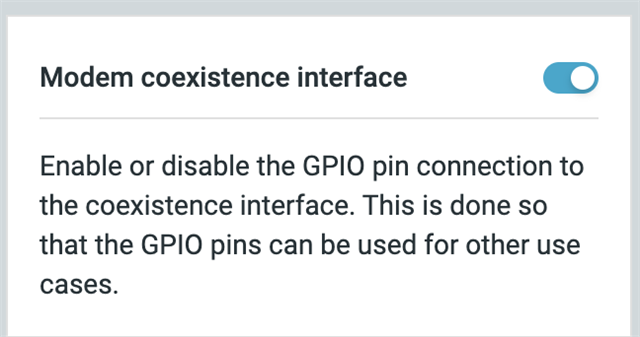Hello, my application requires very precise timing to trigger an action on the edge of the GPS time. I just need to get this time once in a while to synchronize the system, and afterwards, I can trigger a timer interrupt every 1s following the event of the GPS time trigger. After some time searching in the documentation, I found that the nRF9151 DK has a COEX1 interface, quoting from these 2 sources (source 1 and source 2):
COEX1 – Output from the LTE modem to the external device. When internal GPS is used, COEX1 delivers the GPS 1PPS (one pulse per second) time mark pulse. The 1PPS feature must not be used when LTE is enabled.
I'm trying to find a way to access GPS PPS signal, but unsure how. The closest forum post I found is this: https://devzone.nordicsemi.com/f/nordic-q-a/75137/getting-access-to-the-gps-pps-signal-on-the-nrf9160, but the question is about nRF9160 and it's over 2 years old, so I'm not sure if this is still relevant for the new nRF9151 DK. From this document, it seems that I can configure 1PPS, but I don't know how to get this. Is it via an interrupt? Do I need to make any hardware wiring? I'd appreciate it if there is a sample application or general guidance on how to approach it. Thank you.



